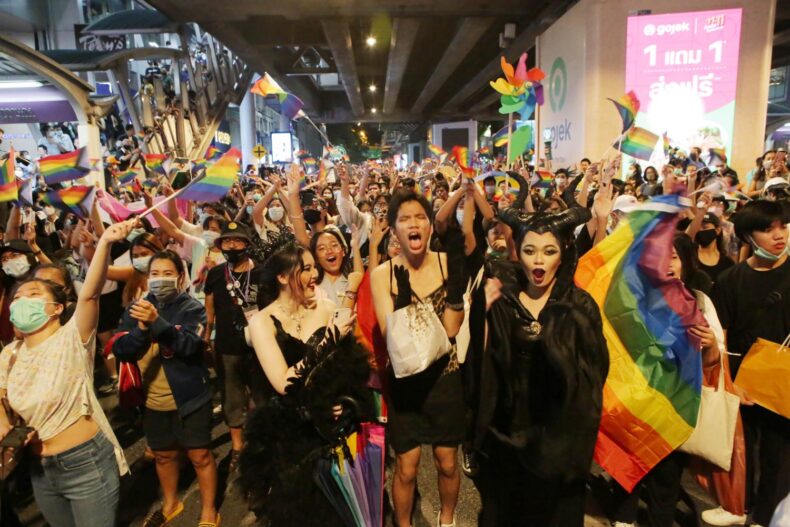Thailand’s lawmakers passed four legislations on same-sex unions in the first reading on Wednesday, putting the country one step closer to becoming Asia’s second country to recognize same-gender marriages.
Thailand boasts one of Asia’s most visible and open lesbian, homosexual, bisexual, and transgender (LGBTQ) groups, adding to the country’s reputation of tolerance and appeal as a liberal tourism destination.
However, campaigners claim that Thai legal institutions have yet to represent shifting social attitudes and that LGBTQ individuals and same-sex couples continue to face discrimination.
Each of the four proposals accepted on Wednesday aims to give same-sex couples nearly the same legal protections as heterosexual couples.
Last Monday, the cabinet approved two bills establishing a same-sex civil partnership statute. Another Democrat Party civil partnership bill was also approved.
Support for Same-Sex Marriages
Despite government whips’ best efforts, a more liberal marriage equality measure from the opposing Move Forward party was also passed. The goal of this draught is to eliminate gendered terminology from existing legislation and make marriage applicable to everyone.
“This is a great sign,” Chumaporn “Waddao” Taengkliang says. In response to the legislation’s adoption, Rainbow Coalition for Marriage Equality’s
“Whether it’s a civil union or marriage, all genders should be held to the same standard.”
Last year, Thailand’s Constitutional Court declared that the country’s present marriage statute, which exclusively recognizes heterosexual couples, is constitutional. Still, they urged that the law be amended to include other genders’ rights.
The measures were passed after Thailand’s first official pride march, in which thousands of people waved rainbow flags and demanded liberal reforms.
Only Taiwan has legalized same-sex unions in Asia so far.
The two government-backed legislation have been criticized by Thai LGBT activists, who argue that a special law for same-sex couples is unnecessary and that existing laws should be amended to be more inclusive.
The four laws will be considered by a 25-member committee, which will determine whether to submit any of them or a consolidated draught, to the house for two more readings before being sent to the Senate and finally to the king.













